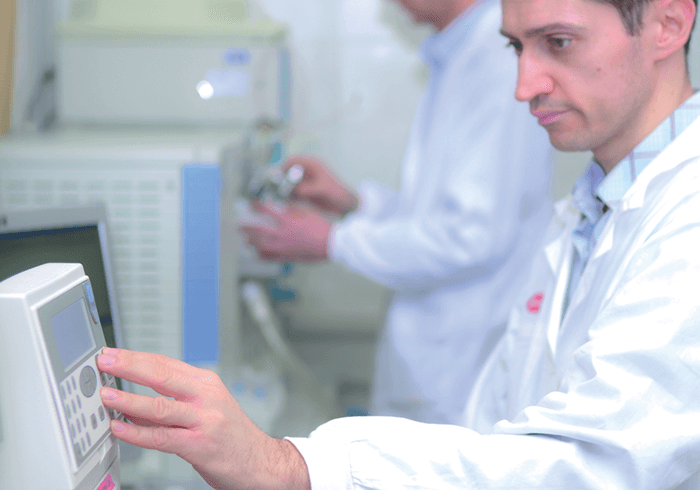Scientists working for companies have made huge contributions across the analytical sciences. Compared with their academic counterparts, however, industry scientists are more apt to stay out of the spotlight. In this new interview series, we will highlight some of those contributions, by talking to industry scientists about the joys (and pitfalls) of doing science in the “real world.” Michele Suman, a Research Manager at Barilla SpA Research Labs, is a true collaborator – a member of working groups in the European Committee for Standardization (CEN), Chair of the ILSI Process Related Compounds & Natural Toxins Task Force, and member of the Board of Mass Spectrometry Division – Italian Chemistry Society. He is also a leader of major EU projects, such as the EU-FP7 FoodIntegrity Project and the EU-H2020 MyToolBox projects. His impressive publication list includes five book chapters, 115 contributions at national and international conferences and 70 papers in international journals.
Here, Michele shares how he successfully crosses the academia–industry divide – and his interdisciplinary vision for the future.
How did you get into food analysis?
I studied analytical chemistry at the University of Ferrara, and my first research project was dealing with new plastic materials development, so taking a role in food contact material research at Barilla was a natural progression.My work at Barilla, studying sensors and electronic noses for detection of “off-notes” in food packaging, eventually brought me back in contact with academia, and prompted me to develop my skills further by returning to study for a PhD in Innovative Materials Science at the University of Parma. I had enjoyed my time in industry though, and happily returned to Barilla after my PhD as Head of the Food Safety & Authenticity Research department. My professional life has been always characterized by this swinging between academic and industrial research poles, trying to extract the best from both worlds, and establish a dialogue between them to achieve more challenging goals.
Why is food analysis so fascinating to you?
Food is a subject that is central to the entire history of the human race (and indeed all life on Earth), and for me studying food is a wonderful combination of passion, health, energy and sustainability, along with innovation and technology.Describe your current work in a sentence
I work with international public and private research organizations on projects within the field of food chemistry, food safety, quality and authenticity, food contact materials, sensing and mass spectrometry applications for food products.
What projects are you working on now?
Over the past few years, I have been devoting substantial time to EU-funded projects dealing with both food safety and authenticity. In particular:- MyToolBox, which aims to mobilize the wealth of knowledge gained from international mycotoxin research conducted over the past 25–30 years (and perform cutting-edge research where knowledge gaps still exist) to create affordable and practical tools for farmers and processors along the food chain and so reduce the risk of mycotoxin contamination of crops, feed and food.
- FoodIntegrity, which aims to meet the need for new harmonized methods and reference materials, consolidation of expertise, sharing of data, and improved understanding of consumer behavior for earlier detection of food fraud worldwide.




